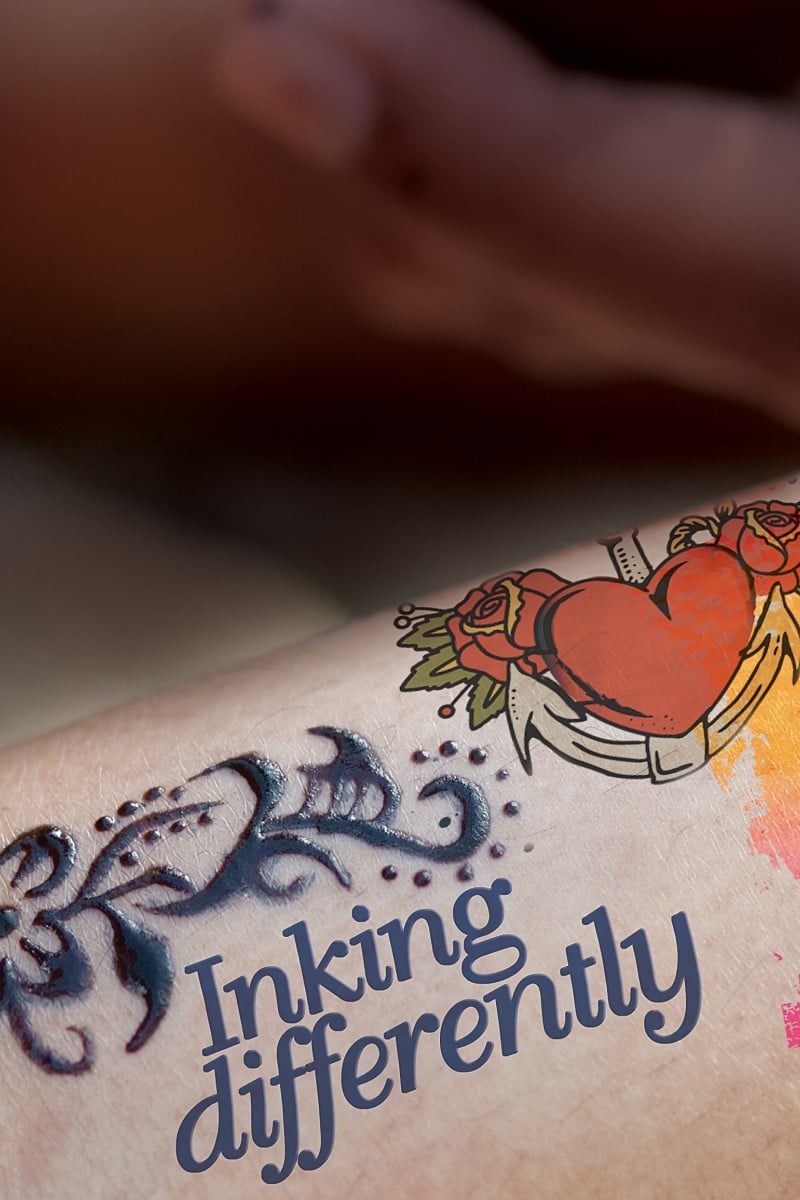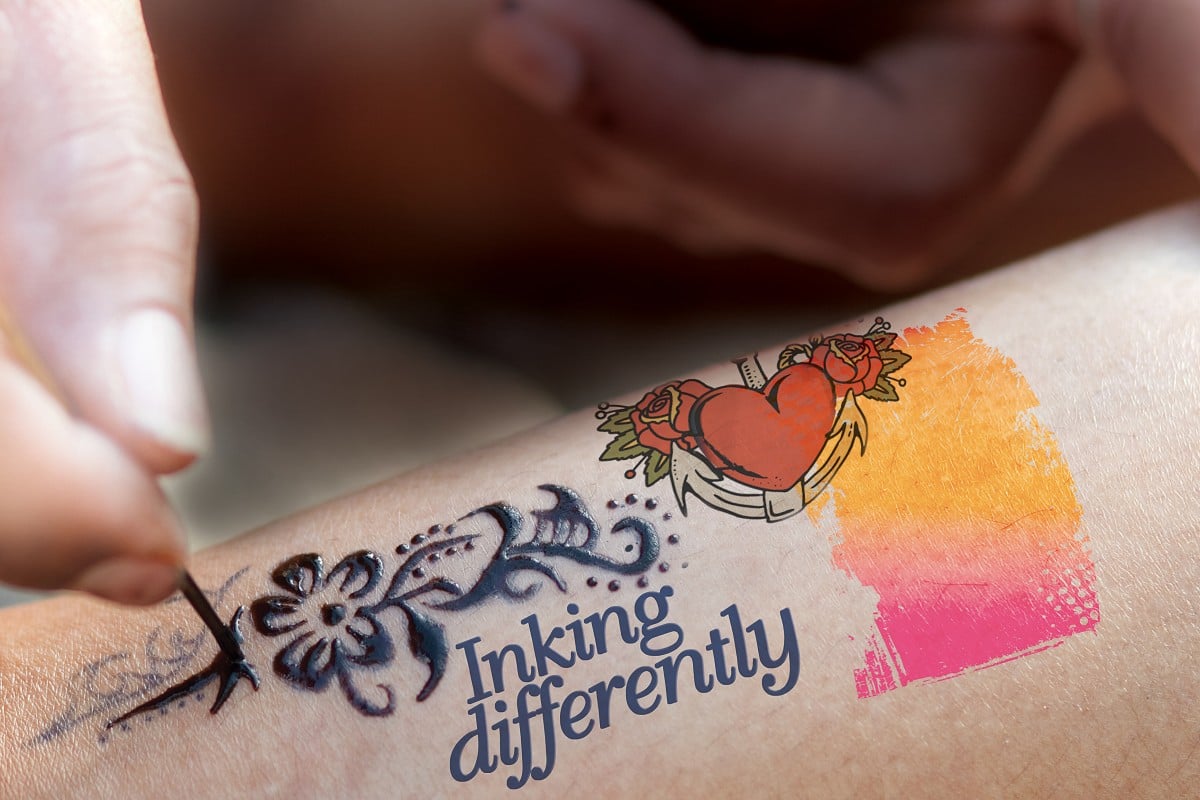
Inking differently: are Hong Kong people's attitudes to tattoos changing?
Tattoos are becoming more common among celebrities and have been popularised by the media. But how do people in our city feel about those 'designs' on the skin?

News
The tattoo trend started with David Beckham and Cecilia Cheung back in the early 2000s. Now, with celebrities from Cara Delevingne to G-Dragon getting inked, public opinion and attitudes towards tattoos are changing.
At the weekend, InnoCentre in Kowloon Tong hosted the third International Hong Kong Tattoo Convention, featuring nearly 120 local and international artists.
For an art traditionally linked to crime and sailors, this was a huge step, and the convention challenged the notion that tattoos were for gangsters and social outcasts. Co-organiser Jay Foss Cole said: "More and more clients were white-collar professionals such as lawyers, businessmen and doctors."
"When I first moved to Hong Kong, I hardly saw anyone with visible tattoos. Now I see it quite often. It seems like the attitude and visibility has increased," says Ross Turpin, a tattoo artist from Starcrossed Tattoo.
During the convention, Beijing tattoo artist Qi Xulong said that "people are changing their minds about tattoos and discarding old stereotypes. Now, they see tattoos as more like art".
This shift in attitude in Hong Kong is most common among young people. YP cadet Melory So Tsz-ting, 15, says that she finds tattoos "aesthetically pleasing and artistic. My friends aren't as reserved as the older generation when it comes to tattoos".
YP cadet Jemima Barr, also 15, agrees, saying: "What other people do with their bodies is up to them and there is no reason to discriminate against people who have tattoos."
Staff writer
"A lot of the artists lack professionalism, have low standards, and only do the bare minimum. These people usually don't have a lot of experience," says Turpin. He suggests that anyone getting a tattoo should "inquire about the artists' hygiene practices and ask about their disposable equipment".
One of the key things to look out for is if the artist puts plastic over equipment so that blood doesn't spray everywhere and make sure that the artists use new needles each time they get a new client. This is especially important because getting a tattoo comes with the risk of getting a blood-borne disease, such as Hepatitis B and C, tetanus or HIV.
Some tattoo parlours in Hong Kong use their websites to make claims about their hygiene standards. Hong Kong tattoo parlour Freedom Tattoos, state on their website that they "only use disposable needles and follow professional health and hygiene standards from North America's health department".
Many tattoo parlours can be found in dingy upstairs spaces in the city. "This is because the rent is so high in Hong Kong and money goes to artists directly which means that shops don't earn a lot of money," says Turpin. "Still, this does not excuse bad hygiene standards in shops."
A representative from local tattoo parlour Tattoo Temple says it is the client's responsibility to "choose an artist who has the cleanliness of a surgeon and the talent of a drawing master".
The shifting attitudes of youngsters might encourage teenagers to seek tattoos by non-legal means. Junior reporter Anushka Purohit, 15, says: "Tattoos make you look cooler, not scary."
Yu Lok-yiu, 16, agrees, saying, "Tattoos are eye-catching art". Lok-yiu says she tries to "understand the deeper meaning behind those designs", citing that as a reason why she would treat people with tattoos differently.
A representative of a Hong Kong school says that students "lack the maturity" to make these kind of life-long decisions, not to mention that it is against the law.
Turpin urges youngsters not to get inked at such a young age. "If I got a tattoo before I was 18, I would definitely regret it," he says. "At 18, people rarely possess the maturity to know what image they would want inked on them permanently for the rest of their lives." Turpin advises also against taking to Instagram or Pinterest for tattoo ideas and fads, saying that these "internet sensations" will fade in time and clients might later regret getting those tattoos.
Attitudes towards 'skin designs'
Jemima claims "her parents don't like tattoos as they are rather conservative" and that they question "whether or not a tattoo someone got as a teenager would still hold its meaning 50 years later".
Melory agrees, saying "Hong Kong is rather conservative, and visible tattoos could hinder my chances of landing a serious job in the future."
One professional in the education field says "there is a set of guidelines and procedures for teachers with tattoos", and that he "hesitates to hire any teachers with visible tattoos because there is a hidden curriculum in school where students are heavily influenced by the teachers around them".
The education professional also urges people to "think before you ink, and if you do want a tattoo, consider getting a tattoo that is significant to you."
However, he admits that tattoos have been popularised in recent years by the media and heavily tattooed celebrities, including Justin Bieber. "Tattoos aren't just gang or triad markers now," he says.
Tattoo scene 'flourishing'
And it seems Hongkongers are embracing the change in attitude.
"Generally when I speak to people about what I do, people are like, 'I want to be a part of that'," says Turpin. "The people I talk to speak about tattoos with enthusiasm. It's a way to express individuality. In a city like Hong Kong that is so jam-packed, people often seem very homogenous. Everyone looks the same. Tattoos are a chance to step out of it all."
Voices
"There's a long tradition [of tattooing] in this part of the world. It's an ancient art form but also an endlessly changing, developing one. I've always been interested in tattoos, and wanted to do something that casts them in a more positive light."
Co-founder of the International Hong Kong China Tattoo Convention, Jay Foss Cole
"Think before you ink."
Owner of Zinc Tattoo, Zac Wong
"I love tattooing and I hope people see that it's a form of art. Sometimes people come in here, get a tattoo, say 'OK' and leave. I wish they didn't see it so much as a product."
Owner of Soul Canvas, Kin Liu
Bonus point
50 - 3,000
Number of times a needle punctures the skin per minute for a tattoo
WORD WATCH
Stigma (noun)
Meaning: a mark or quality which other people find shameful and sets that person apart
Use it: One in four people with tattoos say they have experienced some form of stigma or discrimination.
Stigmatise (verb)
Meaning: to mark or brand something/someone as disgraceful
Use it: There were one or two people from the area with criminal records, but the government used the information to stigmatise the entire village, saying it was an area full of thieves.
Stigmatising (adjective)
Meaning: encouraging the disapproval of something
Use it: The stigmatising attitudes towards mental illness means many who suffer don't seek help.